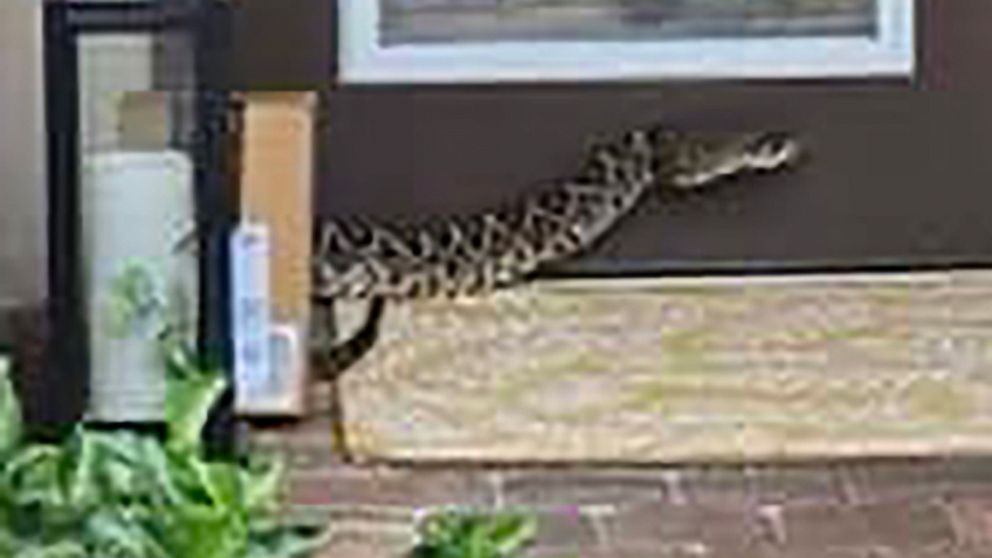


An Amazon delivery driver was dropping off a package at a Florida home when she was bitten by a highly venomous eastern diamondback rattlesnake, authorities said.
The woman was hospitalized in "very serious condition," the Martin County Sheriff's Office said.
The incident took place Monday evening in Palm City, about 40 miles north of West Palm Beach. The snake, which was coiled up near the front door, bit the driver as she put the customer's package down and she "immediately became ill," the sheriff's office said.
MORE: Rides reopened after black bear captured at Walt Disney World's Magic Kingdom parkThe victim was last listed in serious but stable condition, a sheriff's office spokesperson said Tuesday.
"Our thoughts are with the driver and we hope for a full recovery after this frightening incident," Amazon spokesperson Branden Baribeau said in a statement. "Together, with the Delivery Service Partner, we're looking into the circumstances surrounding this incident and continue to make sure that drivers understand they should not complete a delivery if they feel unsafe."
The highly venomous eastern diamondback is very common to the area, the sheriff's office said.
The snakes are brown, yellow or tan, and they have black, brown and cream diamonds, according to the Florida Fish and Wildlife Conservation Commission.
They're an average of 3 to 6 feet long. When coiled, an eastern diamondback "can strike up to two-thirds its body length to inject its prey with venom," the FWC said.
To avoid a rattlesnake bite, sheriff's office spokesperson Christine Weiss recommended to always look down while walking.
"If you are scrolling through a phone while walking or at all distracted, you might not see them until it's too late," she told ABC News via email.
"Rattlesnakes will typically rattle, or make a distinctive defensive noise if they are agitated, feel threatened or about to strike," she added. "So if you are wearing ear pods and not listening to the outside element, you will not likely hear that warning."
"Use caution when moving planters, pots, pieces of lumber or even tree limbs," Weiss continued. "Expect them. They are here and there a lot of them."